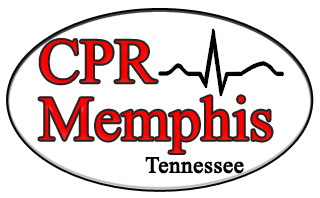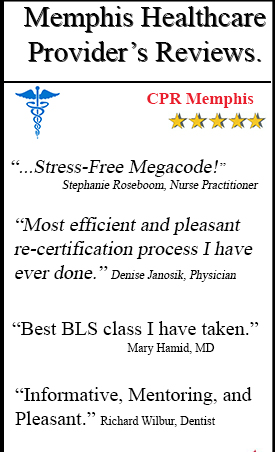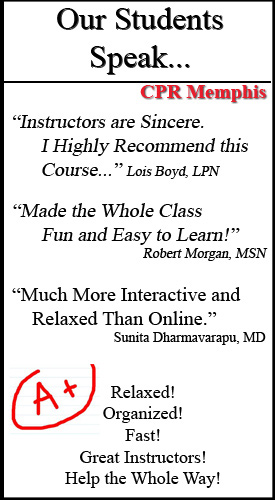Basic Life Support (BLS) certification is a vital credential for healthcare providers and other professionals who may be called on to perform life-saving care. Whether you’re working in a hospital, dental office, urgent care clinic, or emergency services, BLS training ensures you’re prepared to respond confidently and competently during cardiac emergencies, respiratory arrest, or choking incidents. This article explores how long BLS certification lasts, when and how to renew it, and why staying current with your skills is essential for both your professional responsibilities and patient safety.

BLS Certification Validity Period
BLS certification typically remains valid for two years from the date of completion. This standard duration is based on guidelines set by the American Heart Association (AHA), which is the leading authority in resuscitation science and emergency cardiovascular care. The two-year period strikes a balance between skill retention and practical scheduling, allowing healthcare professionals to maintain proficiency without overly frequent renewals. However, due to the evolving nature of medical protocols and resuscitation techniques, the AHA strongly recommends renewal before the two-year expiration to ensure your training aligns with the most current standards.
Expiration Date Details
You can easily find the expiration date on your BLS certification card or digital certificate. It’s generally listed as “valid through” or “expires on,” calculated two years from your course completion date. It’s crucial not to wait until the last minute. Some institutions offer a short grace period after expiration, but many do not. If your certification lapses, you may be ineligible to work in a clinical setting or could risk legal liability in an emergency. In most cases, allowing your certification to expire means you’ll need to retake the full initial course instead of a streamlined renewal course.
To avoid these setbacks, it’s recommended that you renew your BLS certification at least 30 to 60 days before the expiration date. Early renewal allows you to maintain uninterrupted compliance with your employer’s requirements and reduces stress, especially if you’re juggling a demanding healthcare schedule. Planning also helps ensure you can secure a spot in a convenient class time and location. Many training centers, including CPR Memphis, offer evening and weekend courses to accommodate busy professionals.
Renewal vs. Initial Certification
It’s important to understand the difference between an initial BLS certification and a renewal course. First-time certification usually includes a more comprehensive review of life support fundamentals and often takes longer to complete. Renewal courses, on the other hand, are designed for those who are already familiar with the material and require a skills refresher and assessment. These sessions are typically shorter but still cover key updates to the AHA guidelines and include hands-on practice. Most renewal courses also qualify for continuing education (CE) credits, which can be applied toward your state licensing requirements or employer-mandated education hours. Be sure to retain documentation, as many licensing boards require proof of CE participation.
Continuing Education Credits
While the standard BLS certification period is two years, some employers or state boards may impose more frequent renewal requirements. For example, high-acuity departments like emergency rooms, intensive care units, or anesthesia services may require annual BLS recertification. Additionally, institutional policies can vary—what’s acceptable at one facility may not meet the standards at another. Regional regulations also play a role. Some state licensing boards require coordination between BLS, ACLS (Advanced Cardiovascular Life Support), and PALS (Pediatric Advanced Life Support) timelines, especially for paramedics, nurses, and physicians with multiple certifications.
Factors That May Affect Certification Duration
Maintaining your skills between certification periods is just as important as completing the formal training. The AHA encourages regular practice, which can include reviewing training materials, watching instructional videos, or participating in informal peer sessions. Many providers benefit from using online resources that offer BLS refreshers to reinforce skills in compression depth, ventilation techniques, and automated external defibrillator (AED) usage. These resources are especially helpful when guidelines change, as they often do based on new scientific evidence.
Consequences of Expired Certification
Letting your BLS certification expire can have serious professional consequences. Most healthcare employers require current certification as a condition of employment, and working without it can result in disciplinary action or even job termination. Additionally, expired certification can create legal liability in the event of an adverse outcome, especially if it’s discovered that your training was outdated. Most importantly, patients rely on your skills during emergencies. Up-to-date knowledge of the latest CPR and resuscitation protocols can directly impact their survival and recovery.
Renewal After Expiration
If your BLS certification has expired, you may be required to complete the full initial course rather than a renewal class. This typically involves more classroom time and a higher cost, making it even more important to renew early. At CPR Memphis, our team makes the renewal process easy, offering both in-person and blended learning options. All of our BLS courses are taught by experienced instructors and follow the most recent AHA guidelines to ensure you’re getting accurate, hands-on education that meets national standards.
Why Choose CPR Memphis for Your BLS Certification
CPR Memphis is an official American Heart Association Training Site, which means our certifications are nationally recognized and accepted by hospitals, licensing boards, and employers across the country.
Stress-Free Learning Environment
Our courses are designed to be both comprehensive and stress-free. We focus on hands-on training in small class sizes to give every participant the personalized attention they need to master their skills.
Comprehensive Course Offerings
Whether you’re enrolling in BLS, ACLS, PALS, or a general CPR and First Aid course, you’ll leave confident and prepared.
Flexible Scheduling
Our flexible scheduling options make it easier than ever to stay on top of your certification requirements. We offer classes throughout the week, including evenings and weekends, to accommodate even the busiest professionals. For healthcare facilities and medical groups, we also provide on-site group training sessions, which are ideal for maintaining staff compliance and ensuring consistent quality of care.
Planning Your Certification Schedule
To simplify your certification tracking, consider creating a renewal calendar that includes all your required credentials. Set digital reminders for upcoming expiration dates and coordinate renewals so they don’t overlap inconveniently. Many professionals also plan their certifications alongside CE deadlines or licensure renewals to streamline the process. Don’t forget to check with your employer about cost coverage or reimbursement—many offer financial support for required training. CPR Memphis also offers group discounts and bundled packages for those needing multiple certifications at once.
Frequently Asked Questions
Common questions we hear include: Can I renew early?
Absolutely. Renewing early is encouraged to avoid lapses.
What if I miss my expiration date?
You may need to retake the full course.
Do online courses count?
Only if they’re AHA-approved and include a hands-on skills evaluation.
How do I verify my certification status?
Check your digital certificate or contact the training center.
What documents are needed for renewal?
Bring your current certification card and any ID required by the training provider.
Conclusion
BLS certification is valid for two years and plays a critical role in patient care and professional development. Staying current is not just a regulatory requirement—it’s a responsibility to your patients and your team. Choosing the right training center ensures you’re learning the most effective, up-to-date techniques in a supportive environment.





